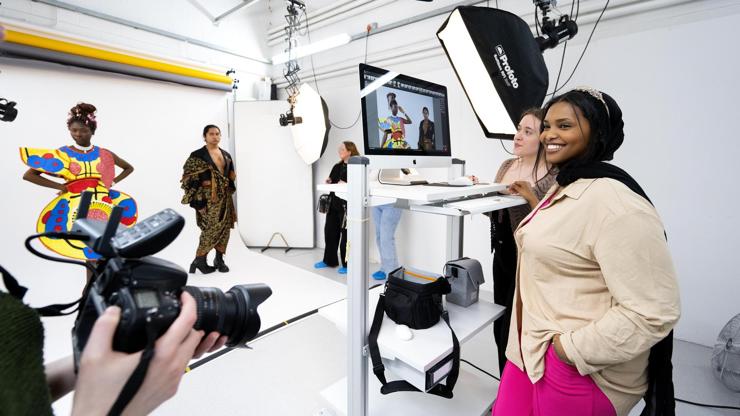What is a fashion designer?
Clothing is expressive. It allows us to send a message about who we are to the world. Whether you wear a power suit or leisure wear, you are choosing to say something different in that moment. Fashion designers are the brains behind this.
A fashion designer will create pieces of clothing, accessories and footwear. They will draw an initial design and finetune it over time. They will consider everything from the choice of material to the colour of the fabric. This requires an eye for detail and an understanding of production.
Fashion designers may work for different kinds of brands. Haute couture and designer brands cater to the higher end market. Their clothing is more expensive and they sell fewer pieces. Designers will be involved in seasonal runway shows which are attended by fashion powerhouses like Vogue. These set the trends which high street brands will follow.
High street fashion designers produce and sell pieces on mass. While this may sound less romantic, there is still room for creativity and innovation as you can cater to specific niches or trends. This is where most fashion designers will work.
Of course, you could also start your own brand. If you spot a gap in the market or something you could do better, then you could launch your own fashion line. Whilst this offers creative freedom, it requires a large amount of time and money.
Some fashion designers may also specialise in a certain type of clothing. This could include children's clothing, swimwear, sportswear, or even wedding gowns. This will depend on your own interests, skills and background.
How much does a fashion designer earn?
A fashion designer's salary can vary. Most fashion designers will start at around £25,000 and can earn up to £40,000. Fashion designers at luxury brands can expect to earn a lot more - some even earn millions.

What skills do you need to become a fashion designer
How to become a fashion designer?
Fashion is a competitive industry, so you will need formal qualifications to become a fashion designer. These should be within art, design or fashion.
You could complete a Fashion Design degree at the University of Central Lancashire. This is a hands-on course where you'll get to work on creative briefs and live projects. This could include 2D design, CAD, pattern cutting and garment manufacture. This will help you build up a portfolio. You'll also learn about the business and marketing of fashion, and hear from guest speakers in the industry.
You will have the option to complete a year in industry as part of this course. This will give you valuable experience and allow you to put what you've learned into practice. You may even secure a role with them after you graduate. We have connections with over 150 brands, so can help you to secure a placement.
In your final year, you'll take part in our degree show. You'll be able to display your final designs on the runway. This will allow you to gain experience putting together a collection, taking it from concept to creation.
You could also complete a Fashion Design MA to develop your knowledge and skills further. You'll gain a deeper understanding of the research and theories that underpin fashion design. You'll reflect on your own practice and apply this to projects throughout your degree. There is also the option for a professional placement.
Where next?
We hope this has helped you understand how to become a fashion designer. While there is competition, completing a degree and honing your creative skills can help you to secure a role. Take a look at some of our courses and graduate stories below.
- Course
Fashion Design, MA



